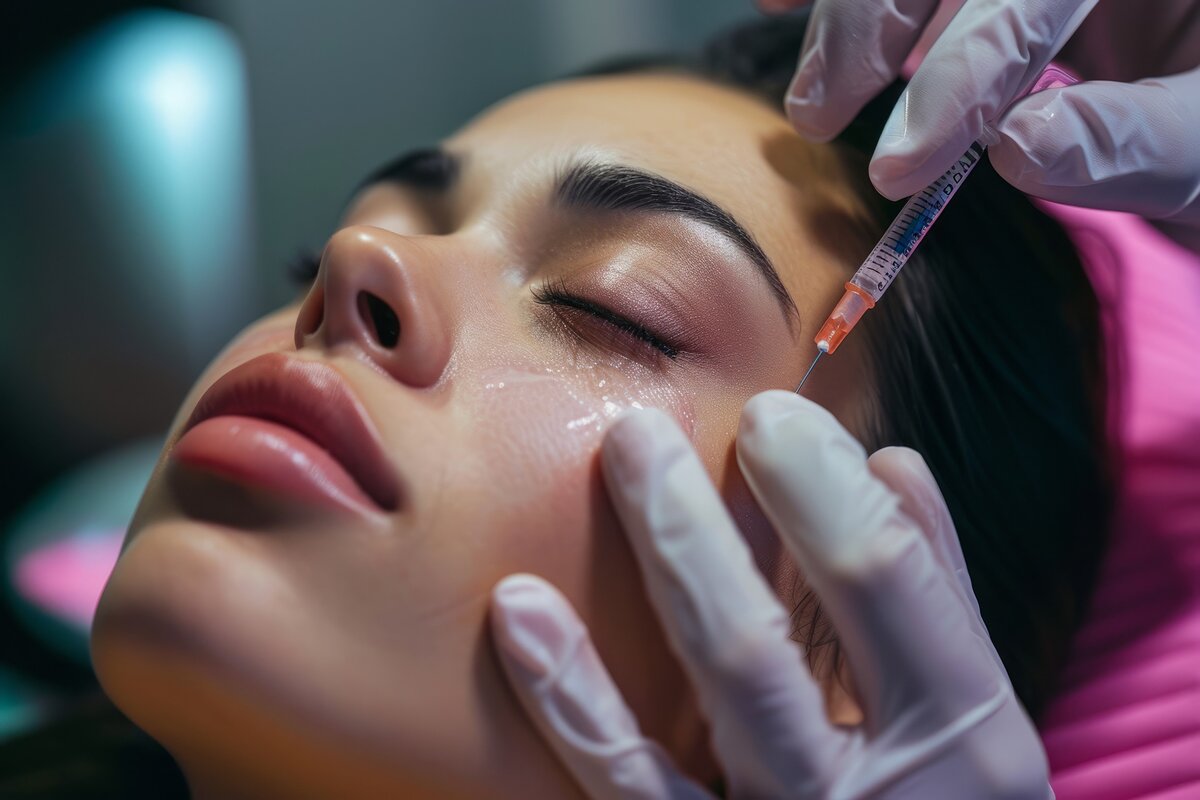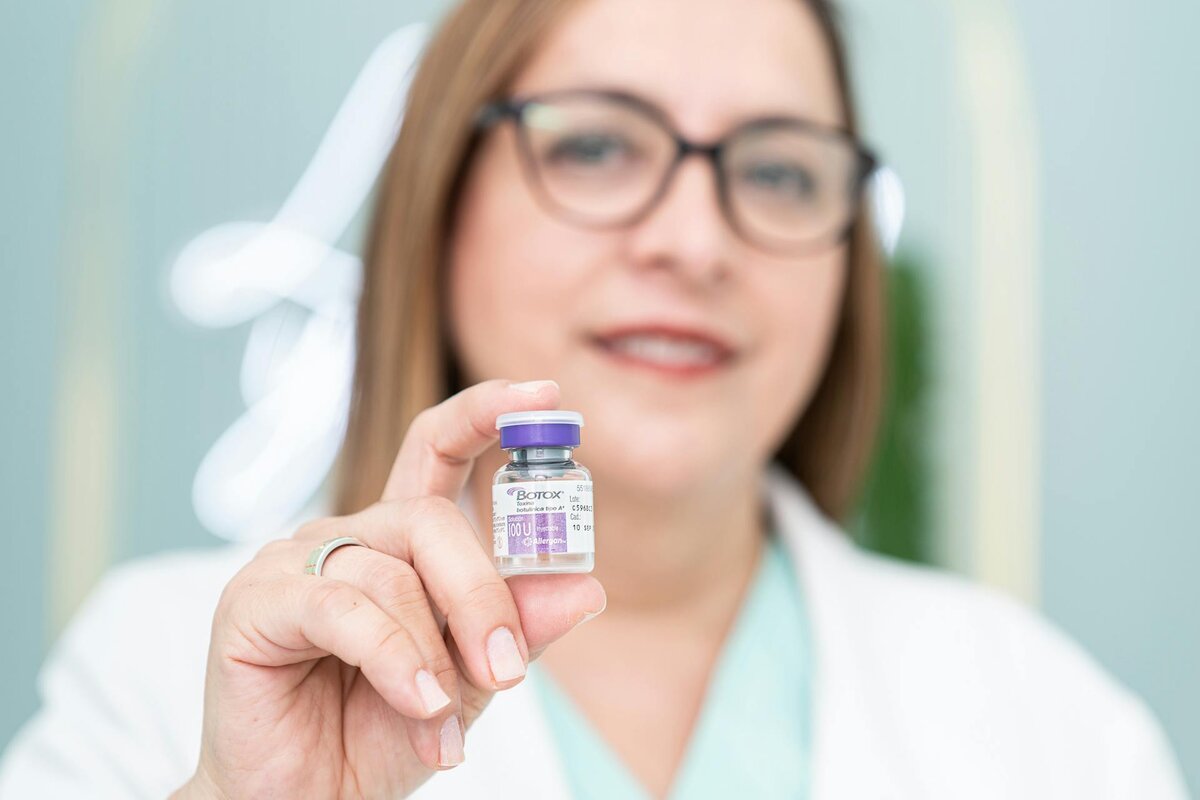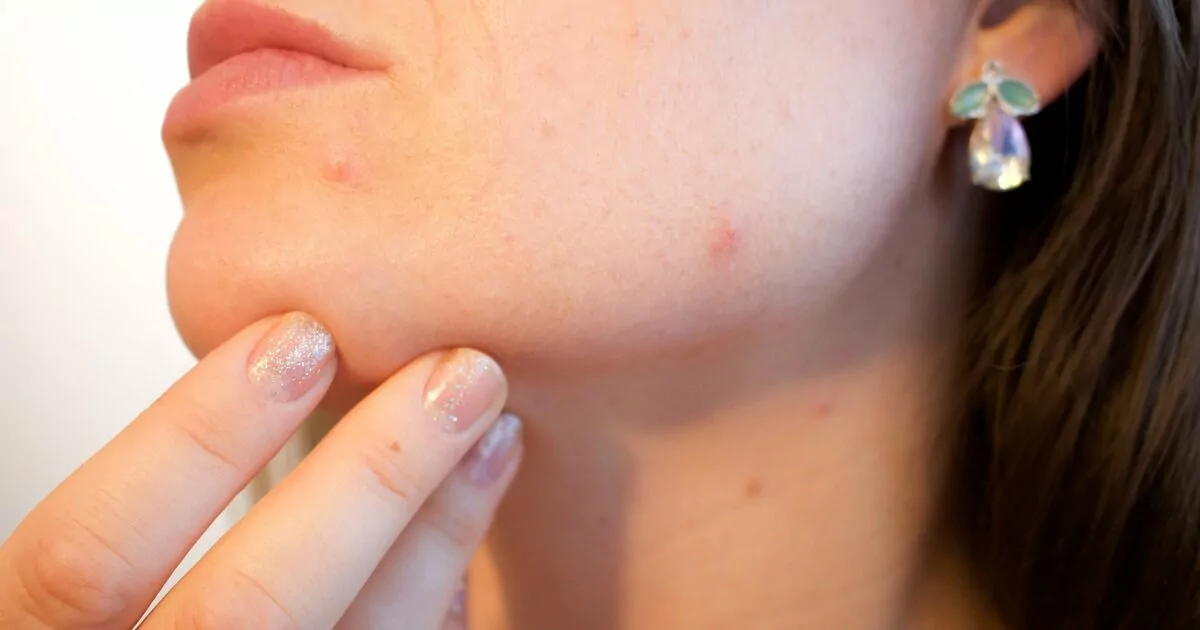Botox, commonly linked to smoothing wrinkles, may also be a contender in the fight against acne. This treatment might offer a fresh angle on managing those stubborn blemishes that don’t respond to traditional therapies. By targeting overactive muscles and oil production, Botox could play a role in reducing the appearance and frequency of acne breakouts, providing a potential solution for those seeking clearer skin.
On this page:
Who Should Consider Botox for Pimples and Is It Safe?
It’s reassuring to know that Botox, as a treatment, has a strong record of safety when used properly by a qualified professional. The substance used in Botox treatments is a purified form of botulinum toxin A, which, in small doses, relaxes muscles and has been used for years to treat various medical conditions, including skin concerns.
Now, let’s get to the heart of whether does botox help acne for those considering it for their skincare dilemmas. It’s not a one-size-fits-all answer, but generally, if your acne is stubborn and hasn’t responded well to other treatments, Botox might be an option worth discussing with your dermatologist. It’s especially helpful for those dealing with oily skin and enlarged pores. When these factors contribute to your breakouts, Botox can help by reducing the amount of oil produced and minimizing pore appearance. However, it’s not typically the first line of defense against acne and is more often considered for those with persistent issues.
But it’s not for everyone. If you’re pregnant, breastfeeding, or have certain neurological disorders, Botox isn’t recommended. And as with any medical treatment, there can be side effects. Most are minor, like redness or swelling at the injection site, but it’s important to talk these through with your healthcare provider.
Does Botox Help Acne: Understanding the Science
Botox, a brand name for botulinum toxin, is widely known for its ability to smooth wrinkles by temporarily paralyzing muscles. When it comes to acne, the principle is a bit different. It’s not about freezing facial expressions, but about targeting overactive sebaceous glands.
The sebaceous glands produce oil, which is necessary for healthy skin. However, too much oil can mix with dead skin cells and clog pores, leading to acne. Experts have found that Botox can help reduce the production of oil. It does this by blocking the chemical signals that turn the glands on. Think of it like putting a dimmer on a light switch, only for oil production.

What’s fascinating is that Botox might also tackle another acne culprit: inflammation. Acne isn’t just about oil; it’s also about the redness and swelling that can make breakouts so noticeable. Botox may help calm inflammation by inhibiting the release of certain chemicals in the skin that trigger redness and swelling.
Even though this sounds promising, Botox for acne isn’t a one-size-fits-all solution. The treatment targets specific symptoms, like excessive oiliness and inflammation, not the acne bacteria or clogged pores. So, while it may help reduce certain types of breakouts, it’s not a standalone cure. It’s another tool that dermatologists can use, especially for those who haven’t had luck with traditional acne treatments.
Comparing Botox to Other Acne Treatment Options
Picture the classic acne treatments like salicylic acid and benzoyl peroxide as the bouncers at the skin club. They work hard to keep the pore-clogging, pimple-causing troublemakers out. These over-the-counter options are usually the first line of defense and can be pretty effective for mild cases. But when they can’t handle the rowdier crowd, prescription meds like retinoids and antibiotics step in, working overtime to clear things up.
Now, here’s where Botox slides in. It doesn’t go for the bacteria or oil production like the others. Instead, it’s all about calming down those overly enthusiastic oil glands that are going into overdrive. Imagine turning down the volume on a loud speaker – that’s what Botox does for oil production.
But it’s not a solo act. Botox might be used alongside these other treatments for a tag-team approach. Think of it as adding a new DJ to the mix to change up the vibe. It’s not replacing the bouncers or the cleanup crew; it’s just bringing a new groove to help get the party under control.
While Botox might sound like the cool new kid on the block, it’s not the go-to for everyone. It’s like picking out your outfit for the day – you’ve got to choose what works best for the occasion. Some people might do great with just the basics, while others need that extra Botox boost to feel their best.
Potential Benefits and Risks of Using Botox for Acne
On the upside, Botox may reduce the appearance of oily skin by targeting overactive sebaceous glands, which are often a contributing factor to acne. By temporarily paralyzing these glands, Botox can potentially decrease oil production, thereby reducing the likelihood of acne flare-ups. Some people have reported smoother skin texture and a reduction in pore size, which can also contribute to a less acne-prone skin environment.
However, it’s not a one-size-fits-all solution. The effects of Botox are temporary, typically lasting between three to six months, which means repeated sessions are necessary to maintain results. There’s also the risk of side effects. While rare, these can include localized pain, inflammation, and in some instances, the spread of the toxin to other areas, leading to muscle weakness or drooping.
Botox doesn’t address the root causes of acne, such as hormonal imbalances or bacteria. This means that while it might help with the physical manifestations of overactive sebaceous glands, it won’t necessarily prevent new acne from forming due to other reasons. It’s also worth mentioning that Botox for acne isn’t currently FDA-approved, and more research is needed to fully understand its efficacy and safety in this context.
Preparing for Your Botox Treatment and What to Expect
Before you go in, it’s best to avoid things that can increase bruising. So, for about a week before your appointment, steer clear of alcohol, fish oil, and meds like aspirin and ibuprofen. It’s also smart to chat with your doctor about any supplements or meds you’re taking, just to be safe.

When you walk into the clinic for your Botox session, expect a clean, professional setting. Your doctor will likely give your skin a good cleanse and might apply a numbing cream to keep things comfy. This usually sits on your skin for a bit before the Botox is done.
Botox injections themselves are pretty quick. They use a tiny needle, and while you might feel a little pinch, it’s generally not a big deal. The whole thing can take just a few minutes, depending on how many spots you’re getting treated.
After the injections, you might see some redness or tiny bumps at the injection sites. Don’t worry, they tend to chill out in a few hours. Your doc will give you the lowdown on what to do and what to avoid post-treatment—like not rubbing your face and steering clear of heavy workouts for a day.
It’s also not a magical overnight fix. It can take a couple of weeks to see the full effect of Botox on your acne. During this time, your skin might go through some changes as the Botox settles in and starts to do its thing.
Post-Treatment Care and Maintaining Acne-Free Skin
First off, avoid touching or rubbing the treated areas. Your skin might be a bit sensitive right after the procedure, and you don’t want to add any irritation. Plus, keeping your hands off your face is a good rule of thumb to avoid transferring any dirt or oil that could clog pores.
When it comes to cleansing, stick with mild, non-irritating products. Harsh scrubs or astringents can be too much for your skin right now. You want to keep your skin clean, but you also need to treat it like the VIP it is—very important pores, that is. Use a gentle touch and pat your skin dry instead of rubbing.
Moisturizing is your friend, too. Even if your skin is naturally oily, a light, non-comedogenic moisturizer won’t clog your pores and will keep your skin balanced. And don’t forget sunscreen. Protecting your skin from the sun is always important, but post-Botox, it’s a must. Go for a broad-spectrum sunscreen with at least SPF 30 to shield your skin from rays that can age it and mess with your acne-fighting progress.
In the days and weeks that follow, keep an eye on how your skin is responding. Everyone’s skin is different, so while Botox might work wonders for some, it’s all about finding what works best for you. And remember, maintaining clear skin isn’t just about what you put on it—it’s about taking care of your whole self. So, make sure you’re eating balanced meals, staying hydrated, and managing stress.
Finding the Right Provider for Botox Acne Treatments
Start by looking for board-certified dermatologists or plastic surgeons who have experience with Botox injections. These professionals have the training to understand facial anatomy and can accurately target the areas that may benefit from the treatment.
You can check their credentials online through the American Board of Dermatology or the American Board of Plastic Surgery. These sites confirm if a doctor is board-certified, which is an important step to ensure they’ve met specific training and practice standards.
It’s also a good idea to read reviews and look at before-and-after photos of previous acne patients. This can give you a feel for the provider’s work and what you might expect. However, remember that every person’s skin is different, and results can vary.
Schedule a consultation with potential providers to discuss your goals and concerns. This visit is an opportunity to ask about their experience with treating acne with Botox, the number of procedures they’ve performed, and their approach to safety and side effects. A good provider will be honest about whether Botox is a suitable option for your acne concerns and will explain the potential outcomes and risks.
Trust your gut during these consultations. You want a provider who listens to you, answers your questions clearly, and makes you feel comfortable. If a provider seems pushy or doesn’t take the time to address your concerns, it’s okay to look for someone else.
Consider the location and availability of the provider. While you don’t want to choose solely based on convenience, it’s worth thinking about the ease of attending follow-up appointments and dealing with any potential side effects.
The Future of Botox in Dermatology
The journey of botox for pimples in the realm of dermatology is ever-evolving, with its promising role in acne treatment. While not a mainstream solution yet, its potential benefits suggest it may soon be a valuable tool alongside traditional treatments. As research progresses and methods improve, Botox could become a go-to option for those seeking alternative ways to manage their acne.
A healthcare provider’s guidance is crucial for anyone considering Botox for acne, ensuring safety and effectiveness. The future of Botox in dermatology is bright, and its potential expansion into acne treatment is a development worth watching.
